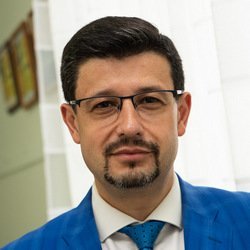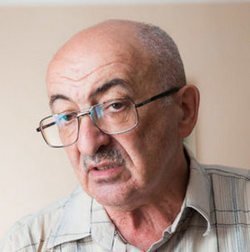'Unified State Exam, unfortunately, does not determine the success of university graduates'
Kazan scientists want to revise the order of enrollment in universities, excluding the Unified State Exam as the criterion for selecting applicants for admission
The order of admission of applicants to universities needs to be reviewed, KNRTU-KAI (Kazan National Research Technical University named after A.N. Tupolev) specialists strongly believe. During the study, scientists came to the conclusion that “the average score of the Unified State Exam does not allow to identify applicants who have great inclinations for successful completion of studies at the university”. It is much more important to pay attention to the individual achievements of young people, according to the authors of the report. Many teachers from other Kazan universities agree with their colleagues. Read the details in the material of Realnoe Vremya.
USE and university studies
The KNRTU-KAI published the results of the study on how the average score of the Unified State Exam, which serves as a criterion for selecting applicants for enrollment, affects the successful mastering of the university programme. The authors of the work are Anna Svirina, the director of the Institute of Engineering Economics and Entrepreneurship, and Aleksey Lopatin, who has recently held the position of vice-rector of the KAI, and now heads the TISBI.

Such conclusions do not surprise other Kazan scientists and university professors either. Many have extensive experience working with students and accepting applicants based on the results of the Unified State Exam.
“The Unified State Exam does not characterise a person's real willingness to study in the specialty that they chose at the university," said Leonid Tolchinsky, the dean of the Institute of Social and Philosophical Sciences and Mass Communications at the KFU. “Firstly, because there is a lot of drilling mechanism in the Unified State Exam. But the university in its educational process is largely focused on the ability to self-organise, to find answers to questions independently, on self-education, on the desire to acquire knowledge, on the desire to explain them. Mechanical drilling during the Unified State Exam does not correlate in any way with the process that then takes place at the university. And people who were relatively successful in passing the Unified State Exam may not be very successful in their university future.”
The new rector of the TISBI and his co-author in their work gave another argument in favour of the conclusion about the inefficiency of the Unified State Exam in the selection of applicants to universities:
“The Unified State Exam in the form in which it was conceived and implemented in 2009 today does not exactly reflect the full variety of approaches, methods and forms of modern education. One of the main arguments in this dispute is the steady decline in the results of Russian schoolchildren in the internationally recognised PISA exam.”
Meanwhile, the average USE score of applicants to universities is one of the key evaluation criteria — it is taken into account by both the Ministry of Science and Higher Education of the Russian Federation and numerous national research centres that make up university rankings based on these data.
Individual achievements of the applicant are much more important
The second thing that the authors of the study pay attention to about the impact of the average USE score on the success of the development of the educational programme of the university is individual achievements.
“We also saw that academic performance is more accurately predicted by individual achievements than by the results of the Unified State Exam," Aleksey Lopatin emphasised. “This parameter defines 7,5% of the options. Which, of course, is also not enough to state that applicants with higher individual achievement scores study better at the university.”
Nevertheless, this fact, according to Lopatin, clearly speaks in favour of that universities do not interfere with reviewing the admission procedure for applicants and taking more seriously the individual achievements of graduates — GTO, participation in Olympiads, sports competitions and so on.
Another conclusion that the researchers came to is that the first session predicts the success of a student by more than 50% after graduation. And many university employees fully agree with this statement.

But there is also another opinion. Some teachers believe that it is still difficult to judge their further studies by the performance of first-year students.
“It is not quite correct to say that the results of the first examination period are an indicator. Many students who study well in 1-2 courses do not always successfully complete the learning process," said Alexander Dembich, the head of the Department of Urban Planning and Planning of Rural Settlements of the Kazan State University of Architecture and Engineering. “It happens the other way around. Those who do not study very well at first, not brilliantly, sometimes then get carried away with studying and graduate from university perfectly, do excellent final qualifying works and then successfully work in practice. I know such cases.”
School vs University
This happens, according to Dembich, because of the big difference between the school and university education systems:

Another difference between the school and the university, according to him, is that the former gives average knowledge, but the university always assumes in-depth training, tailored to a specific area. Which also presents a certain difficulty for the student when adapting to the university. And the success of training, according to the teacher, is determined by whether the student has chosen the right profession. But, unfortunately, it can often be recognised only by the 3rd year.
“When the profession becomes interesting to students, and it becomes clear somewhere by the 3rd year, then they begin to study successfully, even those for whom it was difficult at the beginning. Some become disillusioned with the profession, and the interest disappears. This usually manifests itself by the 3rd course," says Dembich. “There are a lot of general education disciplines in the 1st and 2nd courses, and students still don't really understand what they will need in practice. Only later, when there are more and more professional disciplines, they already begin to realise the whole essence of the profession.”